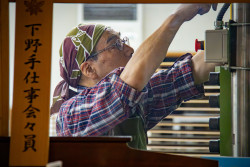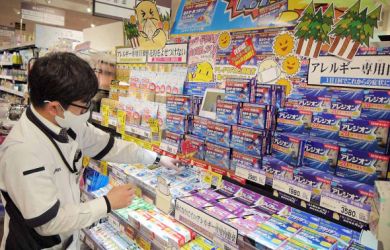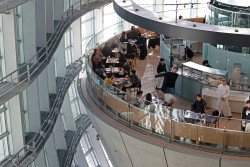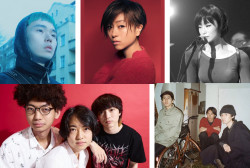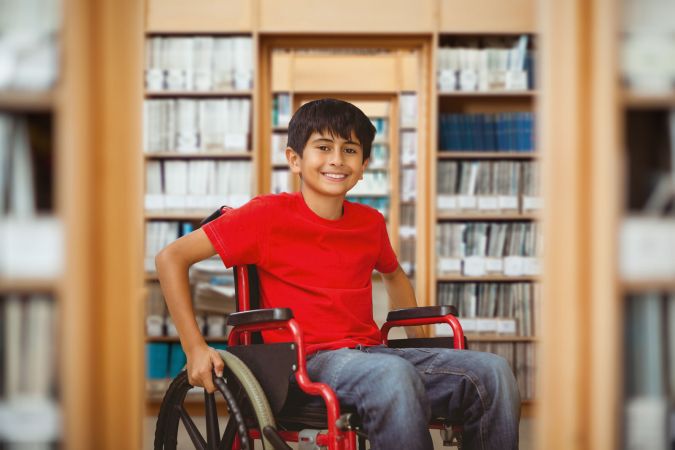
December 16, 2022
Based in Japan: Unleashing Potential in Challenged Children
An interview with NPO Chairman Roland Thompson
Unleashing Potential
More than 6.5% of the Japanese population needs special care or support, but only a small portion is receiving the aid they need. With the advent of social awareness and technology, the environment for disabled individuals and children in Japan is getting better, but compared with other countries, the social benefit and support these individuals can receive are limited, and there is still a lot of progress that needs to be made. The situation is especially difficult for challenged children, whose families have to bear the responsibility of raising their children single-handedly.
One major issue these individuals face is the lack of awareness. Many people in Japan are unfamiliar with the situations these individuals are placed in and are not always aware of the lack of support they receive.
We interviewed Roland Thompson, the current chairman of Unleash Potential, a Non-Profit Organization for disabled children in Japan. We learned valuable insights about how to overcome the barriers these challenged children face, and how we as individuals can act to help unleash the potential of these valuable children.
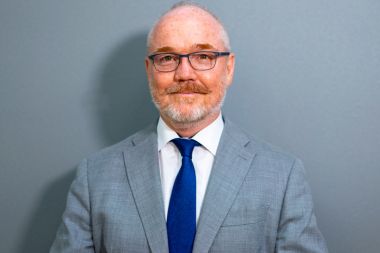
What’s your background?
My name is Roland Thompson and I am currently the chairperson for the Unleash Potential NPO in Japan. I’ve been the chairperson of this organization since 2018.
I’ve been in Japan since 1987 and I have held a variety of senior management careers in banking, computer, and technology, and I am currently in sustainability – mostly renewable energy.
What is UP?
First of all, what is our vision and what are we trying to do? Our vision is to help create a socially inclusive world, where challenged children can reach their full potential. A world where children are accepted, no matter what their challenge is, and where we are supporting them to reach their potential. If you put together the right support frameworks, children can blossom whether it’s in an Olympics Sport, sports in general, or in the workplace.
Our mission is to help these children. We build communities to bring like-minded people together as volunteers and we try to build awareness through these communities through our outreach program. We are communicating more through our website and social media. We also do fundraising programs, such as charity cocktail events, marathons, and a lot more. At the events, we introduce programs we are trying to raise funds for, such as a summer program for challenged children to spend three days in a camp with other challenged children, so they can enjoy an experience away from home. We raise funds for this kind of program through events. We also try to support children with educational needs as much as possible.
How many volunteers does UP have, and how fast is it growing?
We have a minimum of 10 directors, an external auditor, and a chairperson. We are growing each event. Each event, we have about 60 to 100 people, and our broader community is as big as 500 people at the moment. FCSC established UP in 2021, and we are only in our second year.
We have grown in terms of fundraising exponentially. We’re now able to give several hundred thousand Japanese yen to the YMCA as a donation for the challenged children’s programs. We did that in September this year (2022). YMCA is already using our funds for children’s programs, and it is wonderful. We’re hoping that we can do the same donation again next March (2023). We’re looking to impact each year 2,000-5,000 children each, and we want to grow this number each year. We’re trying to make sure that basic human rights are guaranteed for each child as well. An inclusive society is what we are trying to achieve.
What motivated you to join UP?
It started with a very personal experience. In 1992, when our first child was born, she was born with a disability. It was a very difficult birth. From an early age, we realized that she would need a lot of extra help. We found out that in Japan, very different from international countries, the level of support for families with challenged children was very low. There is support here, but it was not at the level that I was expecting, and I’m from Australia. I was very motivated to try and learn myself what other support we could do for our daughter, and also how we could introduce more international standards into Japan to support challenged children in other families as well. In 1999, I joined the Foreign Community Supporting Committee (FCSC) and started to volunteer and raise awareness and funds for challenged children in Japan.
You mentioned that the support Japan provides to challenged children is insufficient compared with international countries, but why do you think that is the case?
There are a lot of reasons for that. I think it is primarily the philosophy that the parents have to take the burden of responsibility for supporting their children. The welfare philosophy in Japan is very much centered on the individuals’ efforts as opposed to in the West, where the government is there to act as a safety net. There are a lot of welfare programs in the United States, whether that is for unemployment or handicapped, disabled, etc. In Japan, they do have employment benefits, but most welfare programs are associated with companies. If you join a company you have a very good health insurance program. But the program historically has not been as developed as the West, and it is very minimalistic. Things like therapy sessions for your children, additional equipment for your children, and so on are very limited. The type of welfare that you can apply to is also limited, and the amount of benefit or economic support you can get is also fairly low.
I can give you examples to compare. My daughter went to Australia, to live there, and on arrival, she automatically got a disability pension supported by the government. She would have a minimum living standard based on that pension. In Japan, they don’t have this system. What they have is a system of registration. Disabled people can register, and if they are capable, then they are promoted to work in an actual company under a policy where a company has to employ a certain percentage of challenged people. The obvious problem here is that families with challenged children have to support the children to get employment. There are services in the community that support these families with disabled children, but there is still a large number of people with the needs and not enough support.
I agree that compared with foreign countries, the service Japan provides is not that expensive. I also believe that one crucial problem is the lack of awareness in Japan.
That’s a great point. Awareness and particularly education about this issue is an area that we (UP) are focused on as an NPO. We are trying to build more awareness. The Japanese government tracks and reports statistics on several challenged individuals and children in Japan. I always get the sense that the numbers they are reporting are somewhat lower than the actual amount because they are relying on the number of registered individuals. There could be a large number of people out there who perhaps need help but haven’t gone through the official registration.
What is the biggest challenge you face in UP?
We would like to build a lot more awareness that these children are an asset – look at the positive side rather than the negative side. One of the fundamental things that we learned is that these children can be productive and are very enjoyable and have engaged lives in society. But many of them are treated with shame. For example, some families hide their children behind a veil of shame. In a wealthy society like now, the world is trying to become more inclusive, but we haven’t applied this in society in a way that supports challenged children.
We need to raise awareness that these children are not a burden, and they are an asset. These children can work just as effectively as normal adults. I think we need to push for this fundamental change in perspective that these children are valuable people within society. Our biggest challenge is trying to change the viewpoint.
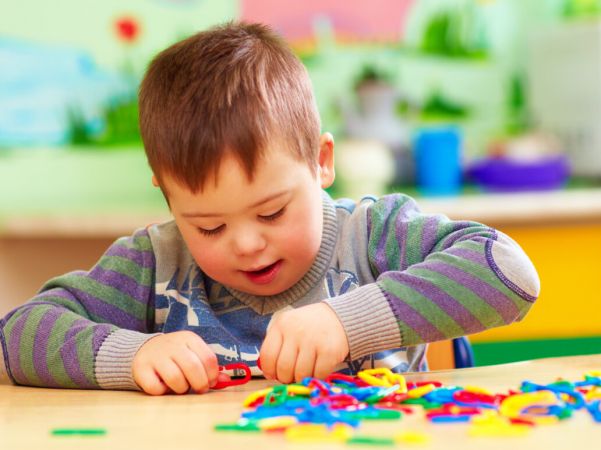
How can we change the mindset of people who regard these children as a “burden”?
It’s just showing how courageous these children are and what they can do. There is some amazing technology out there and for the parents, we are trying to help them understand there are a lot of tools and technology out there that can support the child and give them a huge opportunity in the future. If you can support them early, they’ll have far more options in the future.
What can we as individuals do to support challenged children?
You can join Unleash Potential! Don’t be shy to offer your support when you see challenged children. That is always a wonderful thing you can do. Please be open and courageous and dare to do that. Even if you can’t participate and get involved, being aware of the subject is important. It helps create this mindset that you are trying to resolve this inequity that is building in communities or societies. Act early!
Where do you see UP in 10 years?
That’s a good question. In 10 years, what we hope to have achieved is to have grown awareness about challenged children. We want Japanese companies to be able to understand the value behind these children, and possibly create intern programs to help these children get an early start on what it is like to work in companies. We would also like to raise more charitable donations which we can distribute to 20,000 challenged children. We hope to have a variety of programs, such as education, direct children development programs, work experience programs with companies, etc. We would like to reach this scalability so that other NPOs and NGOs, and companies can work with us to create a much broader impact across Japan. We would love to not just focus on Tokyo but across Japan.
The Charity Event on March 23rd, 2023 is now fully booked!
For more information and to keep in touch with future events, email contract@unleashpotential.jp

